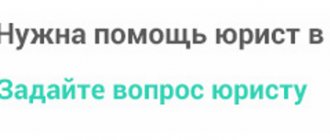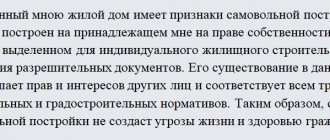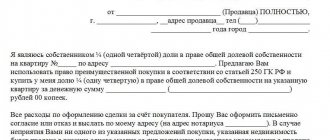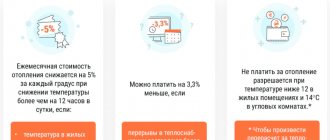Average rent rates for a 3-room apartment
In large cities, in the vast majority of cases, in addition to basic utilities, additional ones are also taken into account, and therefore, when deciding to move to any other city, it is best to first understand how much you will have to pay for a three-room apartment .
In Moscow, if a person lives in a three-room apartment, the approximate area of which is 60 m2, he will need to pay utilities in the amount of 2,000 to 3,000 rubles.
If the building in which a citizen lives is recognized as unsafe in accordance with current legislation or its wear and tear is more than 60%, no rent will be charged in principle.
Standard tariffs look like this:
| Heating | 1,400 rubles for each Gcal. |
| Hot water | 26.5 rubles for each cubic meter. |
| Electricity | 3.5 rubles per kW (standard tariff), 3.55 rubles (day) or 2.14 rubles (night). |
| Electricity in houses equipped with an electric stove | 2.5 rubles per kW (standard tariff), 2.5 rubles (day) or 1.5 rubles (night). |
| Cold water | 21 rubles for each cubic meter. |
| Gas supply | 5.4 rubles for each cubic meter. |
| Water disposal (sewage) | 21 rubles for each cubic meter. |
Find out further how to find out the rent via the Internet at the address.
We will also tell you what you can refuse in rent.
Cost of utilities in a one-room apartment
Let's figure out where you have to pay less for utilities: in a one-room apartment or in a private house.
Let's start with the cost of housing and communal services in a one-room apartment with 1 or 2 residents registered in it.
Its area in the example is 35 square meters.
So, how much do utilities cost in a one-room apartment?
View calculations.
As a rule, tariffs for basic types of housing and communal services are set by the city administration. They can easily be found on the Internet for your city.
Let's consider paying for cold water supply. Now this tariff is 21 rubles per cubic meter
.
If you do not have a water meter, then charges will be made according to established consumption standards, they are 5.35 cubic meters of water per 1 registered person
. As a result, we multiply 21 by 10.7 and get 224.7 rubles.
A similar calculation is made for the cost of wastewater disposal. Here the tariff today is 13.6 rubles. At the same time, his consumption rate is always the same as that of cold water
. It turns out 145 rubles a month.
- By analogy, we calculate all other indicators:
- DHW (hot water);
- Heating;
- Maintenance and repair;
- Elevator;
The principle of determining rent for a 3-room apartment
4 rooms Efficiency: 7800 rent, 900 light, about 500 major repairs total 9200r
Depends on sq.m.: 52-150. Heating makes up about 42-45% of the total amount of housing and communal services, calculated from sq.m. Housing services too.
4 rooms. for 72 m2 efficiency, 5 people are registered, no meters, about 14000 + 1000 electricity, major repairs about 400, internet 1100. I want to sell and buy a 2-3 room or private house, my son has already grown up and will move out soon, I need something smaller
Balex2013, I thought we were paying a lot, we pay 9500 for an efficiency of 72 sq.m, we have all the meters.
Balex2013, for 6 people with meters it comes out to less than 10 tr for 68 sq.m. The tariff in the absence of meters is increased. We also have gas on the meter. With the installation of meters per year, you will save 60 tr on vacation.
Balex2013, why did you miss it, I have 4 registered with light, about ten comes out plus major repairs
Nightmare, at least 5000 overpayment per month. The meters will pay off in less than 2 months.
about maybe. But since I have a small child, I do laundry at least once a day, I often want to take a bath instead of a shower, dishes, flushing the toilet tank, etc. In general, the water flows like a river. I think the overpayment is about 2000
Balex2013, without meters you pay according to the norm. The norm per person, if my memory serves me correctly, is 200 liters/day. This is a lot even with a small child. Those. for 5 people this is a cubic meter of water per day. There are also five of us living there. The machine washes almost daily. Children love to lie in the bathtub. Plus an aquarium. The meters show 5 cubic meters of cold and 5 cubic meters of hot per month. The difference is significant.
Balex2013, the norm of cold water is 6.26 cubic meters per person per month, hot water - 2.91. Those. per month they charge you for 31 cubic meters of cold and 15 cubic meters of hot. According to the norm, it is profitable to pay if less is registered than is lived in. The picture is the same with gas.
As for, I think the number of people registered and living plays an important role, the more people, the higher the expense
4k. 112с 98 sq.m. utilities (including water) 10 t.r., electricity 1.6 t.r., major repairs 0.6 t.r., internet 1t.r. = 13.2 tr.
2 room, monolithic frame, new house, 66 sq.m. central heating with meters, 2nd registered, together with electricity and water comes out to 5300
We have 67 square meters of autonomous heating, management services 3600 rubles, electricity 800 rubles, only cold water plus sewerage about 1000 rubles, gas 1300-1400 rubles, now it’s cold, garbage 288 rubles, new house, no more paying for major repairs for 4 years, plus internet 1000 rubles, 3 people registered, meters everywhere, family of 4, parents and two kids
We don’t live in 3 rooms, 74 square meters, we pay 6.5 tr
2-room new building, 50 sq.m. Damn, we only pay 7.5 rent, no utilities. With utilities: electricity, water, canal, gas - 1700 Internet: 1300 Total: about 11t. UK Cyborg, something is stirring things up too much.
3-room, 71 sq.m., 4 are registered for housing and communal services, about 11,500 rubles.
4 rooms 160 sq.m – 21 tr
3 rooms 74 sq.m. approximately 8-9 thousand meters on everything, even heating
3 rooms, 100 sq.m. – in summer 3-4k, in winter 5-7k (independent heating)
3 room almost 100 sq. With all meters 8000 in winter. In summer 4000. Autonomous
3 rooms 112.8 t. plus light 1 t and complete renovation. About 10 t is obtained. Starting this year, they began to recalculate for heat monthly and not once a year. Therefore, it turns out to be about 2 t less.
4-room individual plan. 99.5 m2 per month rent meters cost approximately 10000 + electricity 1000 + internet 1500 + 600 major repairs Total: 13100 per month
Ehh
In Zhatai, fees depend on the time of year. That is, in the summer there are fewer payments, and from December to February the largest payments. Three-ruble note 112 series 78 sq. costs 8 in the summer, and can go up to 18 in the winter. With electricity, major repairs, gas and more. Everything is on the counters. The heat in the apartments is unbearable, the water is boiling hot from the tap. But many complain that this is not the case for them. Especially in new smart homes.
5 room – 15 thousand, 2 – water, light 1.5.
h house, a total of 285 m2 of heated premises, gas about 62-65 tons of rubles per year with boiler maintenance, septic tank 2000 rubles per month, cold water about 600-700 rubles per month - hot water is already prepared from the boiler for free, internet 920 rubles per month Rostelecom, light from 1700 to 2100 per month. a garage for 4 cars is included in the quadrature, 5 people live. garbage 438 rubles per month. it turns out 128-133 t r per year, which is from 10666 to 11110 per month for 285 m2, but it usually comes out a little less
4 rooms 160 sq.m – 21 tr
Below in the table we provide all calculations of the cost of utilities for the entire apartment
If 1 person is registered
| Index | Tariff, rub. | Man registered | Norm | Apartment norm | Total, rub. |
| HVS | 21 | 1 | 5,35 | 5,35 | 112,35 |
| IN | 13,63 | 1 | 5,35 | 5,35 | 72,9205 |
| DHW | 57 | 1 | 4,2 | 4,2 | 239,4 |
| Heating | 44,3 | 1 | — | 35 m² | 1550,5 |
| Electricity | 3,03 | 1 | 150 | 150 | 454,5 |
| Elevator | 4,15 | 1 | — | 35 m² | 145,25 |
| Maintenance and repair | 20,85 | 1 | — | 35 m² | 729,75 |
| Total | 3304,671 |
If two residents are registered.
| Index | Tariff, rub. | Man registered | Norm | Apartment norm/Area | Total, rub. |
| HVS | 21 | 2 | 5,35 | 10,7 | 224,7 |
| IN | 13,63 | 2 | 5,35 | 10,7 | 145,841 |
| DHW | 57 | 2 | 4,2 | 8,4 | 478,8 |
| Heating | 44,3 | 2 | — | 35 m² | 1550,5 |
| Electricity | 3,03 | 2 | 150 | 300 | 909 |
| Elevator | 4,15 | 2 | — | 35 m² | 145,25 |
| Maintenance and repair | 20,85 | 2 | — | 35 m² | 729,75 |
| Total | 4183,841 |
For heating, the norm is now calculated in many areas based on the heated area. In our case it is 35 square meters.
Electricity meters are available in all apartments. Therefore, we will take as an example a consumption of 150 kW per month.
How much do utilities usually cost per month for a one-room apartment? It depends greatly on the region, but on average it comes out to about 2,021 rubles during the heating season and 2,021 rubles in the summer months.
This calculation does not take into account “Common house electricity” and “Common house heating”. These items in the receipt usually cost from 200 to 800 rubles per month, depending on the number of floors of the building and the “greed” of the management company.
You may be interested in comparing the cost of paying for housing and communal services in an apartment with the cost of paying for utilities in a private house.
If you need detailed advice on disputes with management companies, please refer to the section on consulting services or call our company by phone.
Back call
Contact our specialists
| Topolev Alexander Dmitrievich Consultant in the field of commercial real estate. |
| Vlasov Evgeniy Alekseevich Rental Relations Manager. |
How should rent be calculated in a new building?
Summary:
According to the rules, a new building is considered to be a multi-apartment, multi-storey residential building, the construction of which has already been completed. As a rule, only those who bought an apartment after the property was put into operation do not have problems paying utilities in such houses. Let's consider the main points and the most frequently encountered problems in this area.
• for the maintenance of the local area;
Grounds for recalculation
The grounds and procedure for recalculation of housing and communal services are prescribed in Resolution 354.
Reasons for recalculation:
Absence of residents for 5 or more days. If there are several tenants and all are absent for a certain period, each of them must write an application for recalculation.
Providing low-quality services, which must be proven using measurements. Specialists must record insufficient water pressure, temperature, current and other data.
An interruption in the supply of services exceeding the legal time frame.
During the verification of meters, discrepancies were identified. Recalculation is done according to the readings taken during verification.
Reducing the number of residents.
Receiving benefits and subsidies.
During the verification of meters, discrepancies were identified. Recalculation is done according to the readings taken during verification.
Average rent for a one-room apartment
November 14, 2021 No comments
Every year prices for utilities and rent increase. Thus, for large cities the amount of payments is slightly higher compared to small settlements. Current payments are calculated in accordance with the area of living space.
The calculation is carried out by employees of authorized bodies on the basis of the Decree of local government structures, taking into account the indicators recorded on personal accounting devices and specific consumption standards approved for a particular region.
To understand the average amount of utility bills for a one-room apartment, you need to study the current regulatory documents, the tariff schedule used, the difference between tariffs in the Moscow region and Moscow, the rules for calculating and implementing payments.
Legislative regulation
In the Russian Federation, the obligation of real estate owners to pay for housing and communal services is regulated at the legislative level.
Rent is a certain amount of money that is transferred to Russian citizens by structures implementing their activities in the field of public utilities for services provided, among which it is necessary to highlight the following:
- implementation of repair work;
- maintaining a residential building in a condition suitable for living;
- provision of other public services.
The person responsible for systematic monthly payments is the direct owner of the living space or the tenant who occupies the apartment on the basis of a lease agreement. At the same time, the absence or presence of income does not matter. The described requirement is fully regulated by the Russian Housing Code.
The obligation to make payments is formed at the time of signing the employment contract, incl. social or after registration of property rights
.
The provisions of Art
. No. 154 of the Housing Code of the Russian Federation determine the rent structure.
Standards Art. No. 154: payment structure for housing and communal services, living space
These payments are made for:
- maintaining common property in good condition - for example, transferring payments for current repairs;
- apartment maintenance;
- use of property;
- renting an apartment from the housing stock (municipal).
It is important to indicate that, in a separate manner, the property owner undertakes to pay contributions for the implementation of planned work related to major repairs. In addition, residents receive separate bills to pay for housing and communal services.
Disinfection or repair
The pandemic has raised new questions. Complaint from the city of Kirzhach, Vladimir region: the management company charged residents 21 thousand rubles for disinfecting the entrances. Is there a legal basis for charging these expenses to residents?
Svetlana Razvorotneva: There are no legal grounds, because if you follow the Housing Code, all decisions regarding the cost of housing services are made by citizens.
Disinfection costs are simply not included in the minimum list of services for maintaining common property. And when the regional authorities ordered this work to be carried out, in my opinion, they should have determined the source of funding. It would be logical if such expenses came from emergency funds that the regions have. The Ministry of Construction also called for this. In May, monitoring was carried out, and it turned out that in at least 40 regions, including the Vladimir region, there was no assistance to the Criminal Code from local authorities.
Management companies were forced to solve this problem on their own. And they solved it through ongoing repairs, through work to prepare for winter. Therefore, there are fears that we will meet the heating season even less prepared.
Svetlana Razvorotneva and Alexey Matyukhin: Tariffs are different everywhere and in some places they are actually lower than economically justified. But setting tariffs is the competence of the subjects. Photo: rg.ru
Rates
Current tariffs
It was previously noted that tariffs for housing and communal services are steadily increasing every year, and 2021 was no exception. In particular, in comparison with 2018, in 2021 the increase in tariffs is about 7%
. The average cost of such growth per individual payer is 200 rubles.
The Russian Government differentiates residential buildings depending on their type. This indicator determines the final amount of utility payments
. Consequently, in multi-storey buildings this tariff is equivalent to 27 rubles. for 1 sq.m., if the house does not have an elevator, the payment is 21 rubles.
All payments for housing and communal services must be paid on the basis of decisions of municipal or regional government structures.
Samara salaries lost to tariffs
At the same time, if we generally compare the cost of a communal apartment with the average salary, it seems that the residents of Samara are in a worse situation. The salary is the lowest, and the utilities are one of the highest.
And of the other regions, perhaps, except for Irkutsk, Muscovites are in the best position. But not due to cheap utilities, but due to high salaries, which level out its cost. However, if you live in Moscow and receive a salary below average, you can only sympathize with you. And probably advise you to move to Irkutsk.
How much money does it cost you to pay for utilities?
Average rent for one-room housing
For residents of the capital, the following tariffs apply for each individual residential unit:
- — 1-room premises – over 3 thousand rubles;
- — 2-room apartments – from 3.5 thousand rubles;
- — 3-room apartments — from 4.5 thousand rubles.
Provided that individual metering devices are installed in the apartment, this means that the number of residents registered at a specific address is not taken into account. In the described situation, the size of the final payment depends on the current area and meter readings.
Read about the dangers of rent arrears in the article: rent arrears.
Regulations for making calculations and payments
The final payment amount is obtained solely upon completion of a detailed calculation.
The utility fee includes the following payments:
- drainage;
- gasification, heat supply;
- supply of water, light;
- rent.
The calculation process involves multiplying the tariff by the actual volumes of natural resources consumed. Payments are made monthly. It is important to emphasize that if there are no accounting devices in the apartment, the calculation is carried out according to established standards
. For this reason, apartment owners are required to make a fixed payment every month, which depends on the number of registered residents in the apartment.
Upon completion of the calculations, it is necessary to carry out a cash transaction to the account of the management organization. In this case, it is possible to use non-cash or cash payment options
.
It is recommended to pay housing and communal services by the 10th day of the month
. Payments for 1-room apartments are transferred in the amount indicated in special payment documents.
If there is no payment invoice, interested persons have the right to find out the amount of payment by visiting the official web resource of the housing organization or the single website of the locality (if there is one). When making a payment, you should definitely take into account the tariff that applies in a specific region of the country.
All Russian citizens have legitimate grounds for independently implementing calculations for housing and communal services.
Thus, utility bills for a 1-room residential premises can be paid in this way:
- through a specialized self-service terminal;
- through the operating cash desk of a financial structure;
- via Internet banking.
The following categories of citizens must make payments:
- members of partnerships, housing cooperatives;
- lodgers;
- tenants of premises on the basis of a social tenancy agreement;
- property owners.
It is acceptable to restructure the amount of payment in the event of the formation of significant debt obligations. This service can only be used after obtaining consent from the authorized housing company.
Read about who is entitled to a rent subsidy here.
Video: Housing and communal services tips: how to transfer meter readings if you change the management company
How much do they pay for utilities?
Payments for residential accommodation and utilities are trending upward. These country statistics apply to all regions. When calculating, the price for using living space is calculated based on the number of square meters
.
Utilities) are estimated by summing up the cost of cold and hot water, heat, gas, and other amenities
.
In large cities, rent rates are much higher than payments for a similar area in small towns
. The average monthly cost of living in a three-room apartment for 2021 reached 6.5 thousand rubles. In the winter season it is at its maximum.
Benefits provided
The size of utility bills and rent in Moscow can be significantly reduced by applying for benefits. If the amount of utility bills exceeds 22% of the family's total monthly income, a subsidy is provided. For the poor, the calculation is carried out taking into account an adjustment factor. Russians have the right to find out the procedure for registration and the amount of compensation from the Social Security Administration.
The payment can be reduced by the subsidy issued and the benefits received. Rent rates do not change; the state simply compensates for the cost of some services. Benefits are available to pensioners, Russians with many children, disabled people, single mothers, and war veterans. The amount of compensation can reach up to 50% of the size of the communal apartment.
Residents' payment obligations
The rent, including utility bills, is finally established under an agreement with the HOA (Home Owners Association) or management company. For the calculation, the legislator's tariffs are applied, related to square meters of a specific area.
. Residents of houses in disrepair do not pay rent.
The law explains the term “rent” as follows: it is a sum of money transferred by citizens to housing and communal services enterprises (Housing and communal services) in the form of payments. Price includes:
- exploitation of living space;
- repair;
- payment of utilities.
Every tenant is required to pay for their accommodation, regardless of their source of income. This norm is specified in Art. 157 Housing Code of the Russian Federation (Housing Code of the Russian Federation)
. It also sets out the regulations on how payments are made and services are provided.
- In Art. 154 of the RF Housing Code describes the structure of payments.
- Art. 155 LCD - rules and terms by which payment is made.
- Art. 157 - methods of calculation using instruments, norms per person, how much you need to pay according to the fixed amount.
Some citizens, due to financial difficulties, cannot pay the amount every month before the 10th. Failure to do so on time will result in penalties. If there is a malicious attitude towards responsibilities and large debts, a person may lose the right to provide utility services.
Usually you are asked to pay the amount against a receipt that is delivered to your mailbox. The document contains complete information: tariff charges, prices, consumption standards, services provided. The law allows for partial payment of the amount indicated on the receipt form.
Garbage payments
There are many questions from readers about recalculations. Residents of the Moscow region regularly pay for housing and communal services, there are no debts - and suddenly next month they receive a recalculation of three thousand rubles for garbage. In Kaliningrad, the water utility sent a recalculation for two years. Can organizations present invoices for such quite significant amounts retroactively?
Svetlana Razvorotneva: Recalculations for water may be due to the fact that people do not submit meter readings on time. If this is not due to late transmission of evidence, then it is difficult for me to imagine what a legal basis for recalculation could be. Garbage is a difficult story. Service providers who have never worked in this market have entered the market. Perhaps the recalculation is due to data clarification. If in doubt, you should contact the State Housing Inspectorate.
Question from Samara: how would it be fairer to set tariffs for garbage removal based on square footage or the number of residents?
Svetlana Razvorotneva: It’s not for me to resolve this dispute. We also receive a huge number of letters from citizens with the wording that it is not meters that litter, but people. Most likely, the main reason for this approach is the ease of payment administration. It is extremely difficult to calculate the number of actual residents: one person is registered, but 10 live.
But what outrages people most is the inability to recalculate the fee if the service is not provided. If a person goes to the country for the summer, he will still receive payments for the removal of solid waste. Both we, social activists, and State Duma deputies have repeatedly raised the issue of the need to introduce a recalculation procedure. However, this has not yet been done.
Rates
Tariffs for services and housing are set by local governments and state authorities. Standards from legislation are taken as a basis
.
Regions can introduce their own tariffs for making payments by citizens
. In some areas, social status is taken into account. There are benefits to help the poor and other categories in need:
- disabled people;
- minor orphans;
- pensioners;
- unemployed;
- persons with incomes less than 50% of the subsistence level.
Regulatory and legal acts are regulated by the Ministry of Construction and Housing and Communal Services. The same department sets tariffs based on average values.
Average rent
Looking around the country, you can see that rents vary greatly. If in one particular region citizens pay 2 thousand for a one-room apartment
.
rubles, in another city residents pay 3,000 monthly
.
About 17% of the family budget consists of rent and utilities
. The average amount is derived from the calculation that in the winter season the charges are higher, which is associated with heating. And also in the building of 5 floors there are no additional amenities: an elevator, a garbage chute, which are paid for by residents of nine-story buildings.
For example, it will be useful to find out what the rent is for a two-room apartment. Tariffs are approved by city governments. They have been increased in 2021
.
The average monthly cost of living is 3.7 thousand
.
rubles per month for an apartment of about 50 sq
.
meters, two-room, if no more than two people are registered in it. How much citizens pay for electricity and some other needs is not included in the amount
. And for a one-room apartment (30 m2) it costs approximately 2 - 2.4 thousand rubles.
Irkutsk phenomenon
It is remarkable that Irkutsk suddenly became the city with the cheapest utilities.
What do we know about Irkutsk? Irkutsk is Siberia, it’s more than 600 thousand people living quite crowded. The population density is 2252 people per square kilometer. It is a little freer than in Astrakhan, but much denser than in Volgograd.
But this is not the reason for the cheapness of communal services. Irkutsk is home to Irkutskenergo, Russia's largest energy company. It unites 3 hydroelectric power plants, thermal power plants, as well as coal mines and heating networks of the region. That is, it is the largest energy center in the country
. It is not surprising that electricity costs residents of Irkutsk on average 4 times cheaper than everyone else, and cold water costs half as much. And even for gas, residents of Irkutsk pay half as much as other Russians (there is a gas field in Irkutsk that is being developed by Gazprom Dobycha Irkutsk). And all this despite a fairly high average salary of the population - 41 thousand rubles.
Tariff rules
The law establishes average tariffs for the country (for all types of buildings). So for a three-room living space they pay up to 5 thousand
.
rubles Amendments are made by regional authorities taking into account local conditions. For example, the city administration decided to charge 7.5 rubles per 1 meter of living space as the base rate
. The material of the building walls is taken into account: brick. panel or wood.
According to the usual rule, the footage is summed up, taking into account the number of residents. Utilities are charged according to the readings of water, gas, electricity meters (metering devices)
.
As a result of the calculation, citizens have a different amount that is not related to the average value
.
Receipts are also often issued separately for each service. Garbage removal from the area near the house is calculated based on square footage, when a “kopeck piece” pays less than a “three ruble” in the same building
. The tariff for each meter is approved in an agreement with the Housing Office (Housing Maintenance Office).
An annual review of rents, consumption standards and tariffs with amendments to tariff plans is generally accepted. The housing office, by law, sends all residents a month before delivery of the receipt a written notification of changes.
Shoemakers with and without boots
But our hydroelectric power plants operate not only in Irkutsk. the Krasnoyarsk Hydroelectric Power Station,
operates in Krasnoyarsk (and the cost of a kilowatt of electricity there is 4 rubles 75 kopecks, which is comparable to prices in St. Petersburg).
the Volzhskaya Hydroelectric Power Station
near Volgograd (where a kilowatt costs 4 rubles 22 kopecks).
In the Samara region there is the Zhigulevskaya hydroelectric power station
(a kilowatt costs 4 rubles 6 kopecks). It turns out that for some reason the residents of Irkutsk enjoy the benefits of being close to a hydroelectric power station, but the rest - not so much.
What about our
gas
?
We also produce gas not only in Irkutsk. For example, there are gas fields in Astrakhan, Novosibirskneftegaz is operating in Novosibirsk (although, of course, more oil than gas), the volume of gas produced in Krasnoyarsk is growing. However, in none of these regions gas costs less than three rubles, as in Irkutsk. Moreover, in Krasnoyarsk blue fuel is one of the most expensive in the country
(6 rubles 27 kopecks) - it is more expensive only in Volgograd (8 rubles 97 kopecks), which is located only 300 kilometers from the Astrakhan gas condensate field.
With cold water
everything is also quite strange.
The cost of a cubic meter, as it turned out, does not depend either on the size of the city (in Novosibirsk, a millionth city, water is cheaper than in the small 500,000th Astrakhan), nor on the proximity of large water arteries (however, all Russian cities are located near one or another large river), nor from the average salary in the region (if we take into account the salaries of utility workers). What then does it depend on? But we don't know.
Hot water is easier - on average it is 6 times more expensive than cold water
, that's all.
And the prices for garbage
and completely demonstrate unity and equality. Throughout the country, garbage operators have united in a single impulse to charge 90 rubles per person per month. But we can argue endlessly about the quality of waste removal. At least judging by the reviews on social networks, residents of Kazan are satisfied with the cleanliness of their streets, but residents of Samara are not. But perhaps this is due to the excessive pickiness of some citizens, and not to objective problems with export (who are we to judge?).
What is included in payments
Article 425 of the Civil Code of the Russian Federation provides for rights and obligations in the provision and receipt of public services. Typically, the fee includes:
- specific characteristics of the living space;
- consumption of water (hot and cold), gas, electricity, heating;
- garbage removal;
- cleaning the area near the house;
- lighting of the adjacent space.
For example, thermal energy costs according to the tariff in the capital for 2021 from 2021 (until June) to 2021 rubles per Gcal (from July). Regions are making adjustments to the rate
.
Electricity can be priced at 3.5 rubles per 1 kWh. The time of day is taken into account: during the day it is 3.55 rubles, and at night - 2.14 rubles per kWh
. For rural areas, a coefficient has been introduced for these figures.
The rent is affected by the class of construction. Square meters in a townhouse cost 50 rubles per month for each
.
If you buy a similar living space measuring 120 sq
. meters in the “comfort” class, you will have to pay up to 15,000 rubles monthly.
When paying for “utilities” in accordance with the readings of the meters, which must be kept by citizens in order to avoid being charged at the maximum tariff, the readings are taken by a representative of the housing office. Heating is calculated for each meter (for 1, 2, 3-room living space). Water and electricity - according to the number of living persons multiplied by the tariff
. The gas rate (without a meter) is multiplied by the number of residents. It does not matter which apartment is supplied with the resource: two-room, three-room or 1-5-room.
Payments for housing and communal services in 2021 will increase by an average of 4%
On average in Russia in 2021, the amount in the monthly payment of Russians for housing and communal services (HCS) will increase by 4%. Izvestia reported this on Thursday, December 10, citing the words of Deputy Head of the Federal Antimonopoly Service (FAS) Vitaly Korolev. The official said that the new tariffs will come into force on July 1.
According to Korolev, the average price increase of 4% does not mean that this will happen in every region. Local authorities themselves will set the maximum threshold for the total increase in utility bills, the official clarified. Government order regarding price calibration for inflation dynamics
concerns the cost of providing gas, heating, electricity, hot and cold water, sewerage and waste removal.
For comparison, in Chechnya, for example, the threshold for price increases is set at 6.5%, in Yakutia - 6%, in the Novgorod region - 6.4%, in the Murmansk region - 3.2%, in Magadan - 3.8%, in the Penza region - 3.4%, according to the government order. The average is about 4%.
“The FAS regularly monitors compliance with the indices established by the government,” the newspaper quotes Vitaly Korolev.
Previously, the FAS prepared a draft government resolution, according to which the maximum level in electricity tariffs could increase above what is permitted when installing so-called “smart” meters. The problem is that, according to the new rules, Russians are required to install “smart” meters when replacing them from July 1 of this year, and from January 1, 2022, all meters must become “smart.”
No exceptions are provided in the event of an increase in maximum electricity rates due to the installation of such expensive devices,
Deputy head of the FAS told Izvestia. And the question of where to get the money to install these devices in Russians’ apartments and transmit readings from them is now being discussed in the government.
The Ministry of Construction is convinced that it is unfair to shift these costs onto the shoulders of Russians, who have suffered so much economically during the pandemic. The new devices themselves will pay service providers for their installation costs, the department proposed a solution.
“Devices integrated into the smart system should significantly reduce the commercial losses of electricity suppliers, and these savings will also help pay for the installation of new meters,”
- noted the press service of the Ministry of Construction.
An expert of the All-Russian Popular Front (ONF) movement, Pavel Sklyanchuk, recalled that for housing and communal services, bills paid by citizens are not the only source of income; there are also large subsidies from the budget. But price increases due to inflation are inevitable, he believes. Utility companies need to take into account rising fuel prices, carry out infrastructure repairs, and pay wages to employees, the ONF member listed.
The Ministry of Construction, in turn, recalled that housing and communal services enterprises have almost no money left to modernize the utility infrastructure and the supposedly strict state tariff regulation and the debt of citizens for the services provided are to blame for this.
Now the level of deterioration of communications in the country on average is estimated at approximately 60%.
Even to maintain the current state of housing and communal services facilities, a lot of money is needed, the Ministry of Construction explained.
The renovation of heat supply, water supply and sanitation networks alone requires several trillion rubles, this is the total estimate given by regional housing and communal services complexes, the ministry noted. As expected, the situation in large cities is a little better, said Sergei Minko, general director of Urban Innovative Technologies PJSC.
“Today it is impossible to single out regions with the most difficult situation, since it is necessary to consider the financial and economic state of each individual utility enterprise,” said Svetlana Razvorotneva, executive director of the NP Housing and Communal Services Control, in turn. “In the country as a whole, water utilities are the most underfunded.”
The Ministry of Construction said that various programs and tools are being prepared to solve all these problems. Their goal is one - to find investment money, and, apparently, this problem cannot be solved without government money.
Subsidies
Both “utilities” and rent, with the observed constant increase in tariffs, are becoming unaffordable for some segments of the population. There is a social
.
program to support the poor
.
When subsidies are provided, expenses are reimbursed. The rules are regulated by Government Decree No. 761 of 2021
. The purpose of these measures is to resolve housing problems.
If a person’s income is less than the subsistence level, a coefficient is applied that reduces the maximum amount of housing payment. This figure is set differently for regions, taking into account factors:
- remoteness;
- local conditions;
- consumer basket.
The state assists citizens for whom rent becomes unaffordable relative to expenses. To apply for a subsidy, a citizen must visit the social protection office in his locality
. If an individual (or citizens)’ housing and services associated with it amount to more than 22% of their income, such assistance is assigned.







